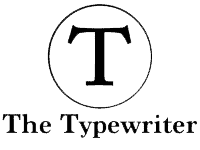The yellow umbrellas have returned to Hong Kong’s streets after last year’s protracted democracy protests with Hong Kongers demanding ‘genuine universal suffrage’ among a range of other issues as the Special Administrative Region marked 18 years since its return to China.
Many Hong Kongers have taken issue with the pro-Beijing government’s sentiment that to be a ‘true’ Hong Konger that loves Hong Kong, one must also love China and the Communist Party. There is popular belief among sections of Hong Kong society that believes the government and Beijing are attempting to ‘brain wash’ Hong Kongers into accepting the Communist Party’s norms.
Protesters marched Wednesday during an annual demonstration commemorating Hong Kong’s handover to Chinese sovereignty in 1997. Thousands took to the streets to call for full democracy, but crowds were noticeably smaller than in previous years. Photo: Kin Cheung/AP
The demonstrations on July 1st come about a fortnight after the Hong Kong Legislative Council voted down a proposal for electoral reform in spectacular style which was branded by many as ‘fake democracy’. The vetoed electoral reforms were supported by Beijing as it continued to allow the Communist Party to have the final decision toward the election of the next Chief Executive of Hong Kong in 2017.
Leung Chun-ying, the current Chief Executive of Hong Kong, has also been targeted by pro-democracy protesters and activists whom accuse him of ignoring the people by not restarting the political reform process. Despite many across Hong Kong calling on Leung Chun-ying to resign, he has repeated his statements saying that there are no plans for a changeover of leadership at least until the 2017 elections.
Although thousands joined rallies across Hong Kong, the overall turnout was less than previous years due to the success in defeating the ‘fake democracy’ electoral reforms and exhaustion from protests from the past 18 months. Changes in the support for the pro-democracy camp and the rise of radical and other pro-government activists have also featured as likely causes for the smaller sized July 1 protests this year.
The perceived ineffectiveness of the pan-democratic movement over the past decade has fueled the rise of splinter and radical localist groups. Instead of the traditional 2 sided political debate in Hong Kong which has largely persisted over the past 18 years with the pro-government and pro-democracy camps, Hong Kong is now witnessing the rise in radical pro-independence, pro-Britain (Hong Kong was better during British colonialism) and extreme pro-Beijing movements.
Hong Kong’s legislature rejected an electoral reform plan that had been backed by Beijing as pro-Beijing lawmakers lacked a two-thirds majority needed for this bill to pass.
Following the Hong Kong Legislative Council’s vetoing of the ‘fake democracy’ electoral reforms, the socio-political divide among those who take interest (as actually many in Hong Kong still hold to the traditional ideal of ‘as long as I can put food on the table it’s ok) has reached new highs. Localist protesters such as pro-independence and pro-Britain groups clashed and fought in the streets of Mong Kok with pro-Bejing protesters resulting in the police deployment of pepper spray.
The violence was greater in such occurrence than the incidents of ‘shopping’ that took place with the Umbrella Movement at the end of last year. The clashes took place in and around the pedestrian zones of Sai Yeung Cho Street with police making many arrests and a subsequent protest outside the Mong Kok police station demanding their release.
The reason for the latest series of street brawls? Can you guess? No this wasn’t even about ‘democracy’… it was because localist protesters were upset that some mainland Chinese women were dancing in the pedestrian area on the street.
The Sai Yeung Choi Street pedestrian precinct has been popular for street performances over the past few years. However on the night of 27 June, things took an ugly turn with pro-independence and pro-Britain protesters ambushing a group of mainland Chinese women performing a new viral ‘square dance’ routine. The ‘square dance’ routine has been popularised in mainland China through soap operas although some in China have also called for the dancers to be more considerate over their noise levels.
It is believed that possibly hundreds of localist protesters were surrounded by an equally sized and vocal contingent of pro-Beijing protesters who used the incident to support the ‘mainland’ cause. Whether or not the pro-Beijing protesters have been paid or offered incentives by the ‘grandfather’ (the Communist Party) is unknown.
Among the brawls and protesters were Chinese flags and the Hong Kong’s colonial flags with both protest groups yelling slogans and insults through their loudspeakers. The pro-Beijing protests shouted that they are proud to be Chinese and that it was their patriotic duty to stand up for China.
Such comments were jeered and booed by the localist pro-independence and pro-Britain protesters whom responded by saying that “barbarians [referring to the mainland Chinese] have no taste.” Hong Kong’s socio-political psyche is now deeply divided than ever before and it seems that even traditional notions of Chinese identity are now subject to intense dispute and controversy.
What next for Hong Kong? No one really knows, the formation of more splinter and more radical groups breaking away from the traditional pro-Beijing and pro-democracy camps demonstrates the further fragmentation of Hong Kong society.
Localists and pro-Beijing supporters clash in Mong Kok on Sunday night. Photo: Reuters
Maybe Joshua Wong, student leader of Hong Kong’s Scholarism movement, is right in saying, in an interview with CNN in mid-June, that Hong Kong should continue the fight of true democracy but also remember that in 2047, most of the current squabbles will be largely redundant with the supposed end of the ’50 years of no change from the British colonial system’ when Hong Kong truly returns to China.
